Amidst the allure of Vietnam in Southeast Asia, one question arises: Is it safe to travel to Vietnam? This updated 2026 guide covers everything you need to know about Vietnam tourist safety before you pack your bags and book a grand Vietnam tour.
You may know about Vietnam through the vivid image of stunning natural landscapes and rich cultural heritages, but you still wonder if it is dangerous to travel to Vietnam and what the situation is like in this country. Let us assure you that Vietnam tourist safety is generally high compared to many countries in Asia. Most visitors travel without major incidents, but understanding common risks can help ensure a smooth trip.
Food safety and hygiene level
When asking “is Vietnam safe for tourists in terms of health?”, the main concerns are food hygiene, water quality, and mosquito-borne illnesses.
Vietnam is renowned for its vibrant street food culture. While street food can be delicious, there have been concerns about the hygiene practices in some street food stalls. It is essential for travellers to choose vendors carefully, opting for places with high customer turnover and visible hygienic practices.
If you hesitate about trying Vietnamese street food, many restaurants and hotels in major cities maintain good hygiene standards. The establishments catering to international tourists are generally more vigilant about food safety practices.
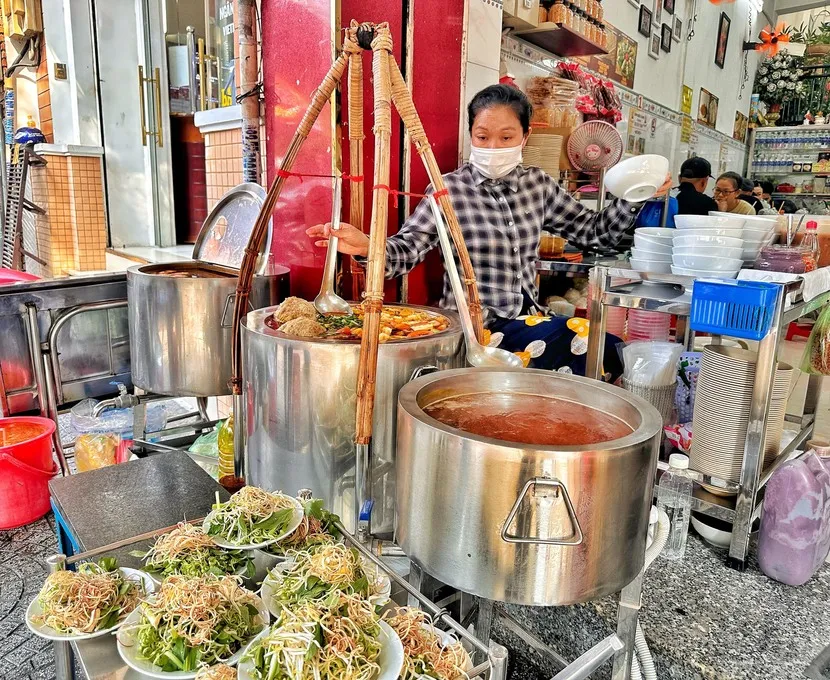
In some remote areas and local markets, food processing and handling practices may not always meet the desired hygiene standards. This is another reason why it's essential to be cautious about where you buy and eat food.
Besides, Vietnam has a lot of tropical fruits, so don't forget to try the delicious fruit dishes in each season. However, wash vegetables and fruits before eating.
Because Vietnamese cuisine is so rich and full of restaurants, it's hard to choose. You can join the food tour of reputable companies so that they will choose good restaurants for you. You will enjoy delicious food in peace of mind. Vietnamese people love to eat dishes made with various ingredients, marinated in many spices. If you are not sure about what you are eating, feel free to ask the waiter or tour guide.
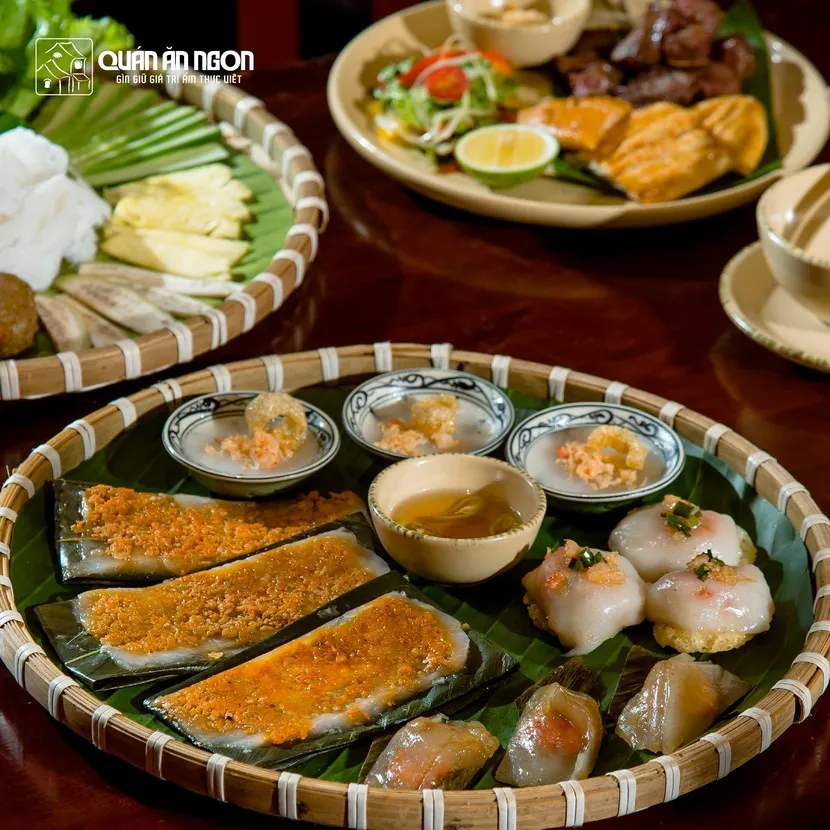
Vietnam water quality
While tap water in Vietnam looks transparent, it may contain some bacteria and impurities that pose health risks. So, as a rule of thumb, do not drink tap water in Vietnam. Even though in urban areas, the water appears cleaner, it is not suitable for drinking directly. Vietnamese people usually boil tap water and let them cool down for drinking purposes. Boiling water helps to kill harmful bacteria. For cooking, restaurants and cafes use tap water and natural rainwater. Today, some households are equipped with water filtration systems where drinking tap water is possible.
Most of the ice you encounter in Vietnam can be consumed except ice in rural areas, where they make ice from unfiltered water. It is safe to swallow iced drinks in big cities' hotels, restaurants, even street vendors, however trying to avoid them in remote areas.
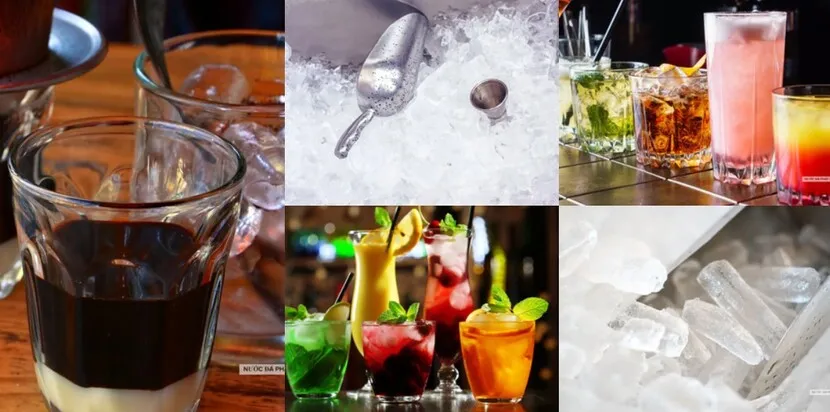
You should use the trusted brand of bottled water to avoid the low quality drink. The best-bottled water in Vietnam includes Lavie, Aquafina, Vinh Hao, Dasani, Evian, Satori, TH, Sapuwa, and Number 1, among many others. All convenience stores, even street sellers, provide you with one of these brands. The price for a bottle of 500ml is just 5,000 VND.
Besides, tap water in Vietnam is possible for brushing teeth and showering as long as you do not swallow them.
Common infectious diseases in Vietnam to be aware
Here are some common infectious diseases to be aware of when travelling to Vietnam.
Influenza: Influenza (the flu) is a common respiratory illness that can occur year-round, with a higher risk during the winter months. Travellers may consider getting a flu vaccine before their trip.
Dengue Fever: Dengue fever is a mosquito-borne viral infection and is prevalent in Vietnam, especially during the rainy season (May to November). Symptoms include high fever, severe headache, joint and muscle pain, rash, and fatigue.
Typhoid Fever: Typhoid fever is caused by the bacterium Salmonella typhi and is transmitted through contaminated food and water. Travellers can prevent infection by being cautious about food and water hygiene.
Hepatitis A: Hepatitis A is a viral infection that can be transmitted through contaminated food and water or direct contact with an infected person.
Hepatitis B: Hepatitis B is a viral infection that can spread through contact with infected blood or body fluids. It is advisable for travellers to ensure they are vaccinated against hepatitis B before visiting Vietnam.
Diarrhea: Practising good food and water hygiene is crucial in preventing this condition.
Tuberculosis: Tuberculosis (TB) is a bacterial infection that primarily affects the lungs. The risk to travellers is very low.
Japanese Encephalitis: Japanese encephalitis is a viral disease transmitted by infected mosquitoes. The risk is higher in rural areas, especially during the monsoon season. Vaccination may be recommended for travellers, depending on their itinerary.
Rabies: Rabies is a viral disease that can be transmitted through animal bites. However, if you are bitten or scratched by a strange dog while in Vietnam, rabies treatment is available.
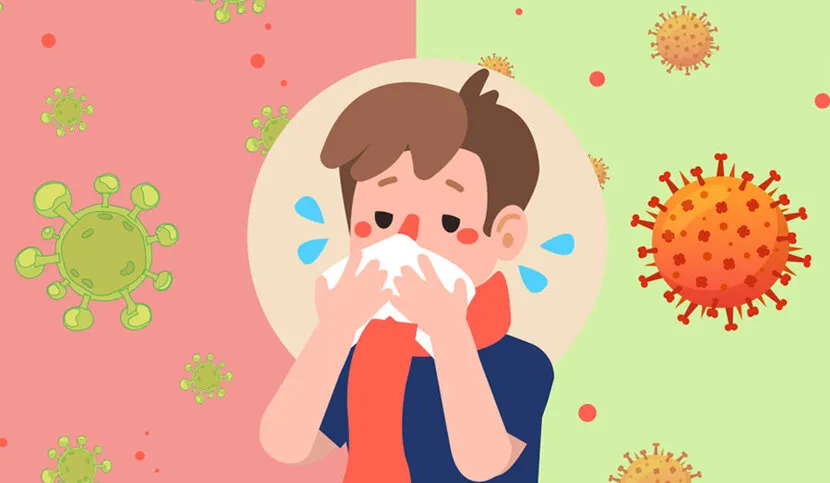
It is advisable that before travelling to Vietnam, you consult a medicine specialist or visit a travel health clinic. They can provide personalised vaccinations based on your health conditions.
Hospitals and health facilities
Public hospitals in Vietnam include 3 levels: central level, provincial level, and district level. In addition to that, there are private hospitals, which are mainly located in urban cities. In rural areas, there are provincial hospitals and commune health stations with simple equipment, just enough for first aid. Medical staff and doctors at these levels of hospital generally speak very little or no English.
The central level hospital is concentrated in urban cities such as Hanoi, Ho Chi Minh City, and Da Nang. In these major cities, it is also easier to reach the significant number of private and state-owned hospitals with English-speaking medical staff. The private and central hospitals are well-equipped with modern facilities and have highly competent doctors. Pharmacies are found easily in every Vietnamese town. If you have any health issues, get a consultation from doctors before getting any medicines.
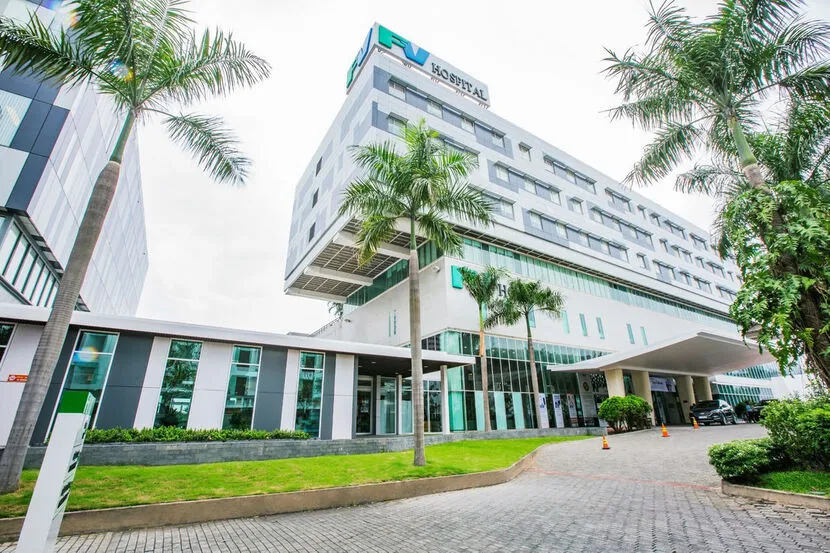
Emergency contact for ambulances is 115.
See addresses of International hospital and clinic in Vietnam
Insects and bug bites
During your stay in Vietnam, you may encounter some kinds of common insects and bugs such as bumble bees, fire ants, bed bugs, black flies, mosquitoes, spiders, cockroaches,... Bed bugs are not only in Vietnam but also other Asian, African countries. These pests are most often encountered in budget hostels, older guesthouses, shared dormitories, and occasionally even in hotels with insufficient pest control. They usually hide in mattress seams, bed frames, behind headboards, or in the crevices of furniture, making them hard to spot at first glance. They are not as harmful as you think but can bite and sting, making you itchy, red, swollen or worse.
To avoid problems, it’s important to inspect your room upon arrival. Check the mattress seams, examining the edges of the bed frame, and shining a light into dark corners can help you detect early signs of bed bugs in Vietnam. Look for small brown or black spots that may indicate their presence.
If you do get bitten, wash the affected skin with soap and water as soon as possible, and apply anti-itch cream or take antihistamines to relieve discomfort. Avoid scratching the bites to prevent infection. While bed bugs in Vietnam are not a serious health hazard, their bites can cause redness, swelling, and itching, which may disrupt your trip. For severe allergic reactions or persistent symptoms, visit the nearest medical centre for prompt treatment.
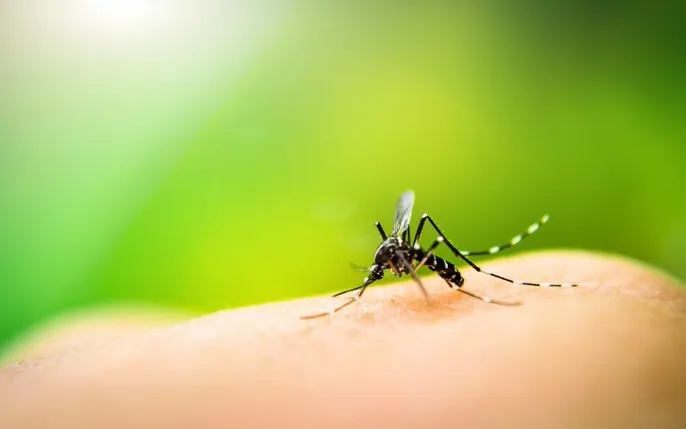
Friendly and hospitable people
Despite the above aspects, we can look at one of the scoring points of this destination. Vietnamese people are generally known for friendliness and hospitality. It is a significant aspect of Vietnamese culture and is deeply ingrained in the social values. From very young, Vietnamese people are taught about respect, kindness, and hospitality towards others. So they practise it with both locals and visitors.
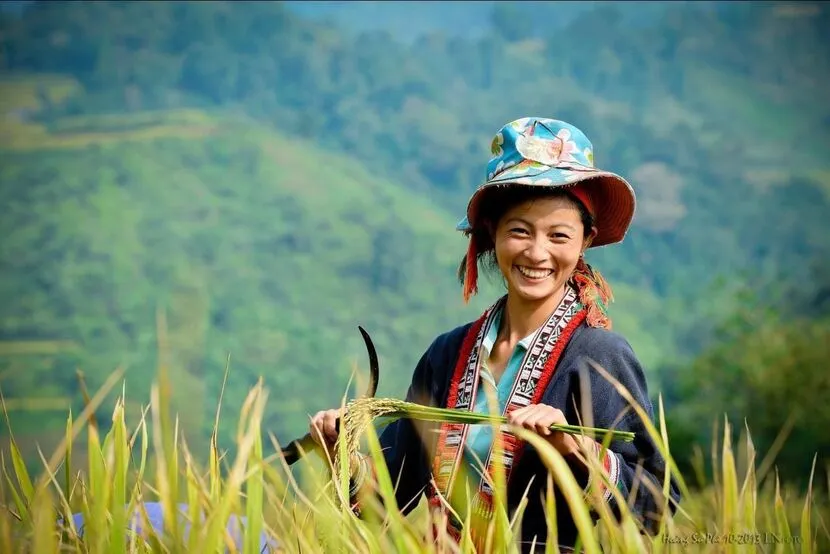
When interacting with foreigners, many Vietnamese people are eager to engage in conversation, share about culture, and make visitors feel welcome. It is not uncommon for locals to offer assistance, provide directions, or invite travellers to join them in activities or meals.
This friendliness and hospitality extend to various aspects of daily life, making Vietnam a popular destination for travellers seeking authentic cultural experiences and warm interactions with locals.
As with any generalization about a population, it's essential to remember that individual personalities and behaviors may vary, but the overall reputation of Vietnamese people as friendly and hospitable is widely acknowledged and appreciated by many visitors.
Vietnam traffic
Many travelers asking “is it safe to travel to Vietnam?” are concerned about road safety. Traffic in major cities can be chaotic. Unaccustomed drivers will find it difficult to join. Vietnamese people are more familiar than foreigners, so they can drive more safely.
The number of traffic lights in big cities are increasing. However, not all motorbike Vietnamese drivers obey the national traffic rules, the car drivers tend to follow the rules more. Partly because the strictly heavy fine is being applied on cars. Sometimes you may see motorcycles and bicycles travel reverse the traffic flow and drivers ringing horns a lot.
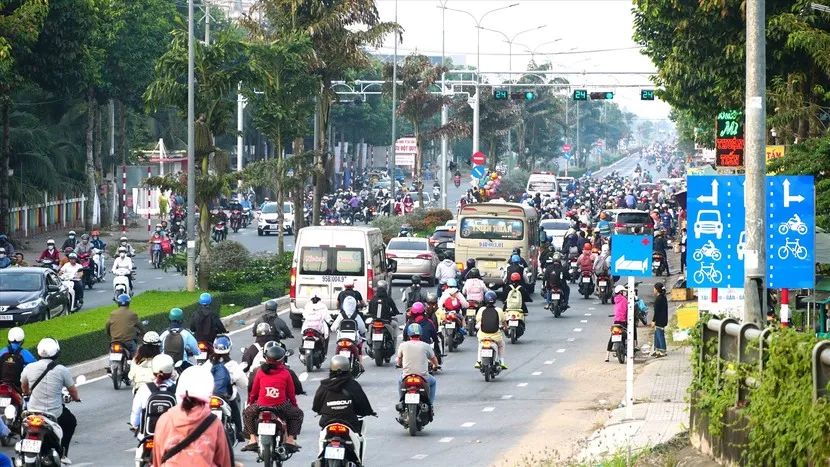
If pedestrians are walking across the road, be careful watching left and right even when there is a green light for walkers and zebra crossing. Bicycle and motorcycle drivers sometimes ignore traffic signals. They even drive on the sidewalks if the roads are too congested.
Driving at night on your own is also not a wise option when the drivers generally drive at high speed while dim.
In the past, traffic accidents were mainly caused by drunks. Nowadays, the government imposes higher penalties for those who use alcohol while driving. The threats from this factor are reduced to the least.
>> See more: Vietnamese Traffic | Essential Things to Note for First-Time Travellers
Theft and crimes in Vietnam
Vietnam is generally a safe country for travellers. However, petty theft and drive-by snatching are still legitimate concerns in a few cities. If you are taking pictures with expensive cameras/cell phones on the sidewalks of Ho Chi Minh City, keep the item close to your body and away from the traffic flow. Ladies should keep their purses and bags carefully when walking. If you have a chance to ride a motorbike, place your bag in a trunk. Bags on the shoulder or basket can be in threat of being snatched.
When staying at hotels, it is a good idea to keep your valuable belongings and passport in a safe locker before leaving.
In case you, unfortunately, are the victim of a crime, immediately report to the nearest police station.
Vietnam weather concern
Vietnam stretches through many latitudes, therefore it boasts a varied weather from north to south. North Vietnam has four distinct seasons: spring, summer, autumn and winter. While South Vietnam has only two seasons: the dry season and the rainy season. Central Vietnam has a tropical climate that is also characterised by two distinct seasons.
Many people wonder what the storm is like in Vietnam. Storms with robust winds can happen in Vietnam in a short time. During storms there will be strong wind and heavy rain but associated with almost no tornados, no cyclones. In the north of Vietnam, the storm happened around August. In Central Vietnam, the coastal areas can be prone to typhoons during the wet season (around October). South Vietnam experiences a wet season (May - October) characterised by frequent heavy rainfall and occasional flooding.
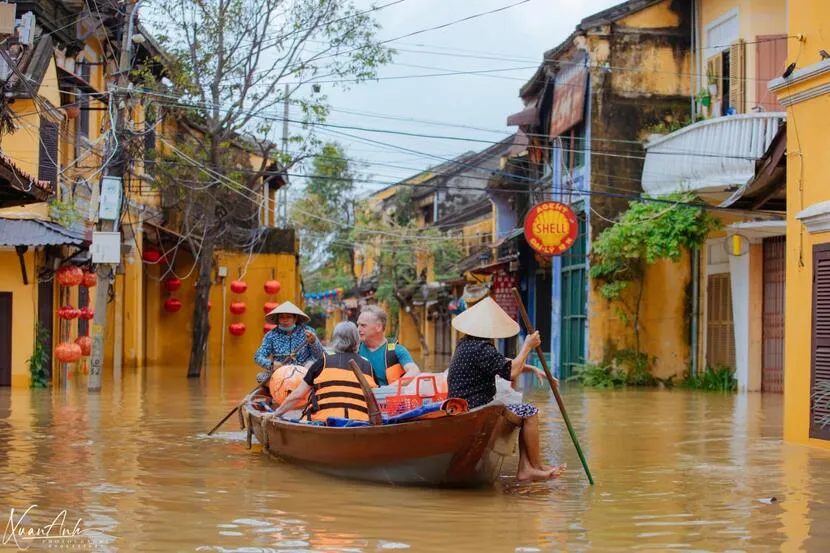
Except for these extreme weather conditions, it is safe to travel to Vietnam in terms of weather. Specific weather conditions may vary yearly, so it's always best to check up-to-date weather forecasts and climate data for the most accurate and current information. Sunny days in the dry season are when you can take the most stunning pictures of your trip.
>> Read more about the Best Time to Visit Vietnam by Region and Month
War in Vietnam
The Resistance War in Vietnam against Americans has officially ended for more than 40 years. Since then, a number of changes have been made in Vietnam in order to create a socialist society. Agriculture, business, industry, education, tourism and diplomatic matters have been following an effective development plan. Today, Vietnam is one of the safest countries in the world to travel to.
In 1999, UNESCO awarded the title “City for Peace” to Hanoi, which became the only Asia Pacific country granted at that time. During a period of more than 20 years, the city’s citizens strive to maintain this recognition.
Vietnam also welcomes many famous head states of countries like Donald Trump’s visit in 2017, President Kim Jong Un in 2019, Prime Minister Giuseppe Conte in 2019,
Mr. Bill Clinton, former US President, has visited Vietnam many times.
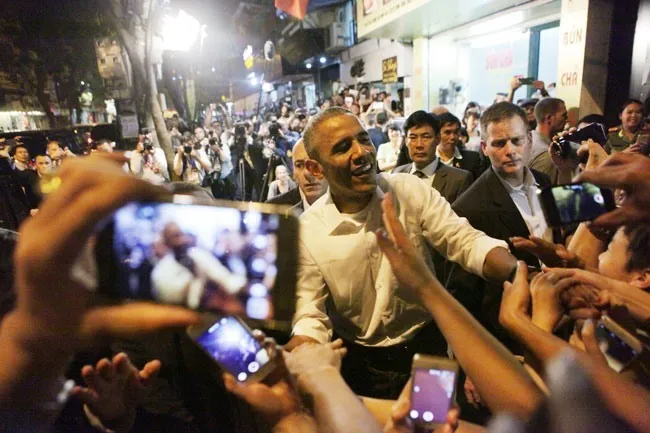
US President Obama shakes hands with people in front of the bun cha shop in to welcome of the people.
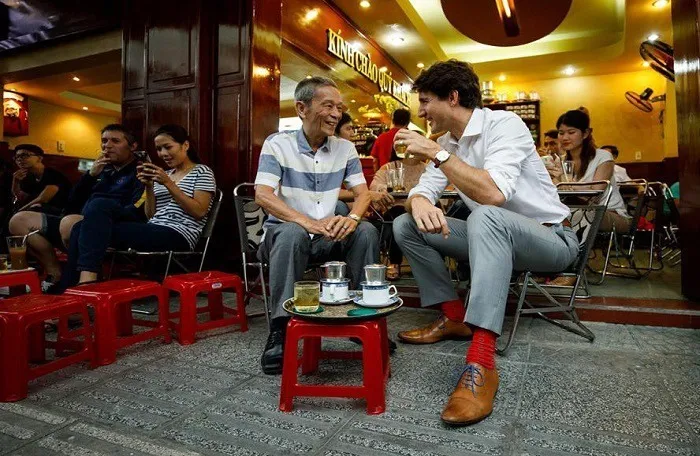
Canadian Prime Minister Justin Trudeau and a man ordered coffee with milk and enjoyed it on the sidewalk.
The image of heads of state of countries strolling idly, eating specialties on the streets and alleys, is no longer strange to Vietnamese people. Vietnam's unique cuisine and friendly and hospitable people are making a good mark in the eyes of international friends.
So, is Vietnam safe to travel in 2026 – 2027? Absolutely, if you stay aware, follow these Vietnam tourist safety tips, and take simple precautions against issues like bed bugs in Vietnam.
See more:
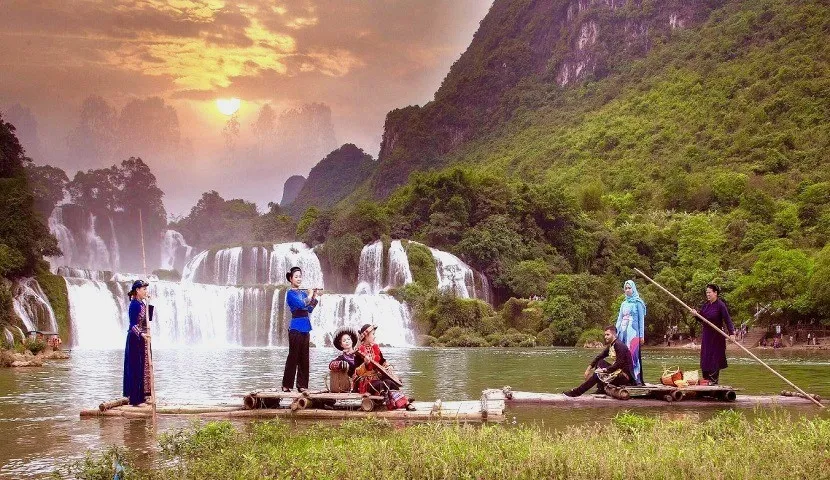







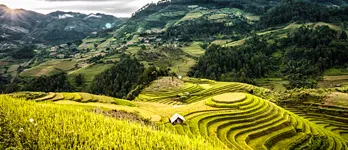
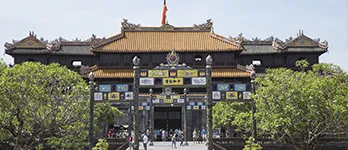
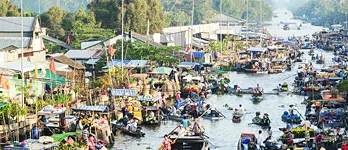

 TRAVELERS' CHOICE 2025
TRAVELERS' CHOICE 2025 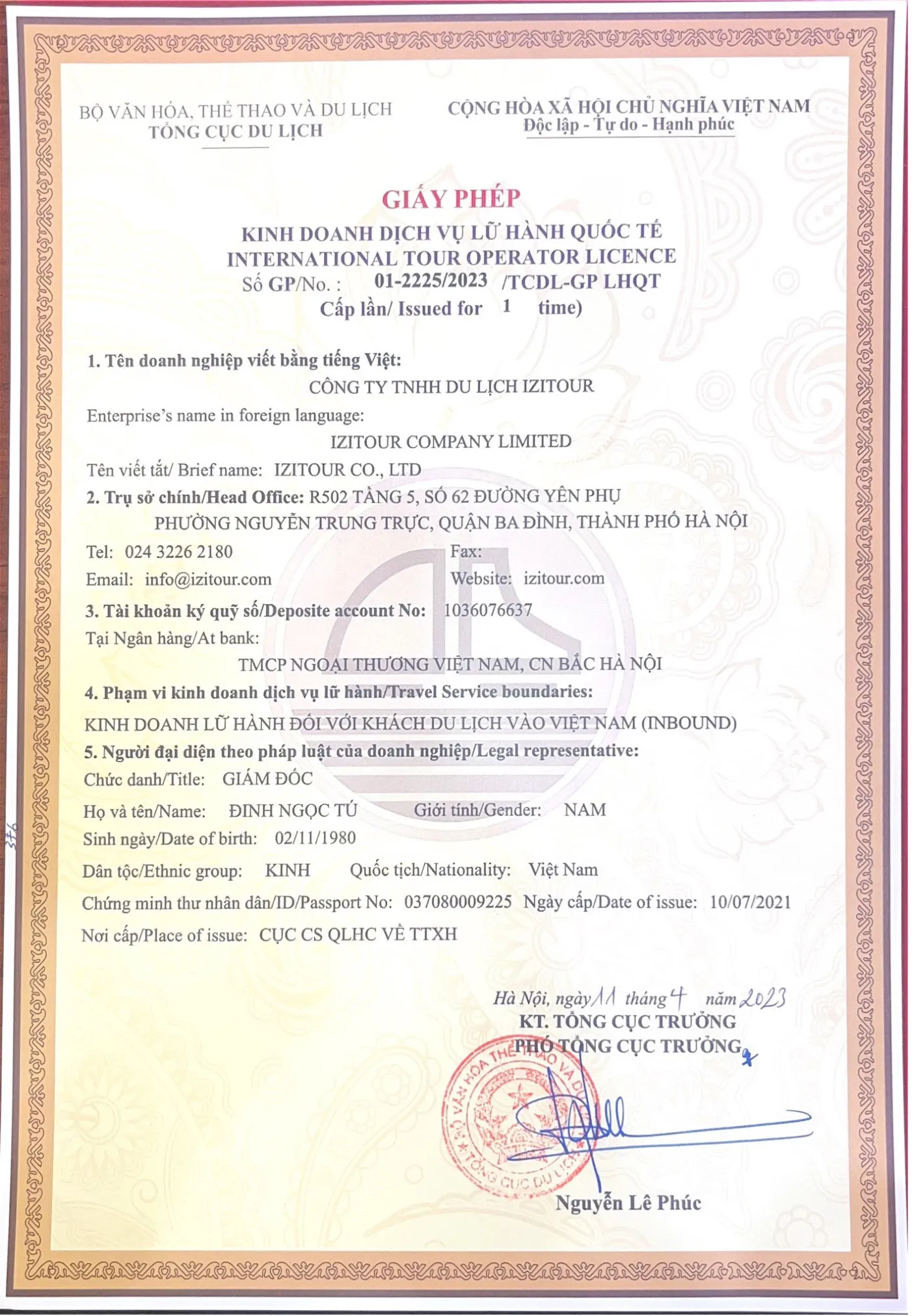



09 Comments
Italy
France
France
Vietnam
Italy
I would like to travel to Vietnam with my husband and son (11 years old) in May. Could you please tell me if it is possible to book the good services during that time?
Vietnam
Hi Anna, thank you for your question. We can guarantee a good tour guide, hotel room, and car,... for you if you book May trip in advance. Our travel consultant will contact you via email to give the best proposal. Best regards,
Latvia
Il Vietnam è il Paese più sicuro in cui abbia mai viaggiato. I vietnamiti sono gentili e spiritosi. Il suo articolo fornisce alcuni consigli pratici per il viaggio. Porterò la mia famiglia in vacanza l'anno prossimo.
Vietnam
United States
I felt absolutely safe walking around in the country on my last Vietnam trip (we went on a tour with a local travel agency). Through my experience I have one piece of advice for you.
For anyone walking on streets in Vietnam (both city and rural streets), make sure that you wear rubber sandals or a pair of shoes with a good grip sole. Because some streets are paved with slightly slippery tiles, not anti-slip. There were times when we wondered if we would walk a lot to put on our running shoes. I asked our guide about the daily schedule and best preparation. The elderly should also be more cautious.
Write Reply